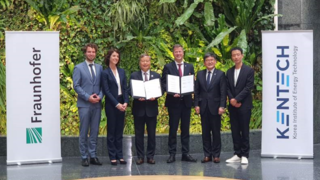3rd Germany-Korea Hydrogen Conference

German and Korean experts from industry, science and politics joined the 3rd Germany-Korea Hydrogen Conference to discuss topics concerning international hydrogen economy and policy, import logistics and value chains, safety in logistics, and further key topics about hydrogen.
The 3rd Germany-Korea Hydrogen Conference took place in Berlin over two days from the 27th to the 28th of September 2022. The focus of the conference was on hydrogen, as Korea and Germany are set to become major net importers of hydrogen and face similar challenges in terms of transport and logistics. This makes green hydrogen a cornerstone of the energy transition and decarbonisation. Experts from politics and science presented potentials and challenges for the development of a hydrogen economy in Korea and Germany. The first session focused on the importance of increased cooperation between the two countries based on shared values and strong trade relations. A good example of this cooperation and highlight of the conference was the signing of the cooperation agreement on the new Fraunhofer Hydrogen Innovation Platform at KENTECH University in Korea.
As part of the conference, the Korean-German Energy Partnership team at adelphi, in cooperation with the Fraunhofer IMWS and the Anhalt University of Applied Sciences, organised a tour of the Leuna Chemical Park for interested Korean participants. The tour started at the hydrogen laboratory of Fraunhofer IWES and the chemical complex of Linde with a hydrogen liquefier and electrolyser, to learn more about the research, production and use of hydrogen. The visit concluded at the Fraunhofer Center for Chemical-Biotechnological Processes CBP for further insights into the development and scaling-up of PtX processes.
The conference was organised as part of the H2DeKo research project of the Fraunhofer IMWS in collaboration with Anhalt University of Applied Sciences and the Korea Institute of Energy Technology (KENTECH). The research takes place in close partnership with the German Federal Ministry for Economic Affairs and Climate Protection (BMWK), MOTIE, the Fraunhofer Representative Office Korea, the Korean German Energy Partnership team and H2KOREA.